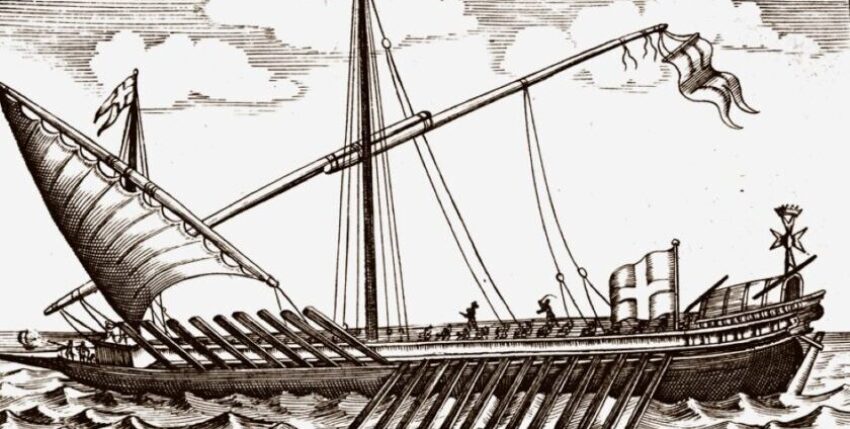7 October 2021 marked the 450th anniversary of the naval battle of Lepanto. Long glorified as a victory of the Occident over the Orient, it was a naval battle between the Christian Mediterranean powers and the Ottoman Empire, which was triggered by the conquest of Cyprus and the execution of the last Venetian garrison commander by the Turks. At the urging of Pope Pius V, the Holy League under its commander-in-chief Don Juan de Austria then assembled a fleet totalling 212 ships with 65,000 men, which was opposed by 251 ships and 77,000 men on the Ottoman side under the supreme command of Ali Pasha.
When the naval battle in the Gulf of Patras began on the morning of 7 October 1571, which lasted just five hours, the Order of Malta's navy was also involved alongside papal, Spanish, Venetian and Genoese ships. The Order, which had just celebrated the completion of its Maltese fortress city of La Valletta that year, provided three galleys which, under the command of the Grand Prior of Messina, Frá Pietro Giustiniani, were involved in one of the most costly stages of the battle, the breakthrough of the Turkish renegade Uluj Ali Pasha through the Christian line of attack. A galley of the Order narrowly escaped capture, while Giustiniani was seriously wounded and lost not only his crew but also his ship, the "La Capitana di Malta". This was not Uluj Ali's first success in the battle against the Order. The son of a Calabrian sailor had already pulled off a coup against the Order's fleet north of Gozo the previous year. In the naval battle of Lepanto, he commanded the left wing of the Ottoman fleet and was able to outmanoeuvre not only the Maltese flagship, but also his direct opponent, the Genoese admiral Giovanni Andrea Doria. Although Uluj Ali had to leave behind "La Capitana di Malta", which he had taken in tow, he managed to capture the Order of Malta's banner and escape with around 30 galleys. For the Knights of the Order, the battle, which was ultimately won by the Christians, was a debacle. Although many Maltese served as officers on other League ships and the Order's captain on the papal flagship had the privilege of bringing the news of the Christian victory to the Pope, the losses were painful. In the course of the battle, the Order lost around 40 members, including the Grand Prior of Malta and Germany, and numerous Maltese were wounded or taken prisoner by the Turks. A total of 8,000 people lost their lives on the Christian side, compared to over 30,000 on the Ottoman side.
As the war did not continue on land, the victory of the Christian fleet at Lepanto was of secondary strategic importance. However, it had a major impact insofar as the Turks' nimbus of invincibility was destroyed and the event was seen as a turning point in the battle between the Orient and the Occident. Not least the Catholic Church knew how to utilise Lepanto for its own purposes. Pope Pius V founded the so-called Feast of the Rosary on the first anniversary of the naval battle, which would later give rise to the Feast of the Blessed Virgin Mary of the Rosary, which is still celebrated today.
Text: Andreas von Klewitz







